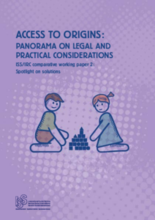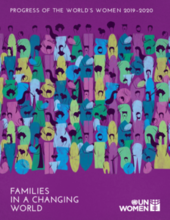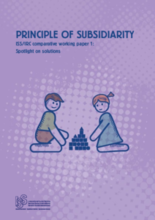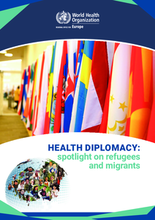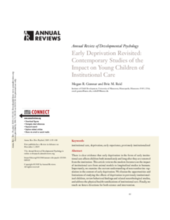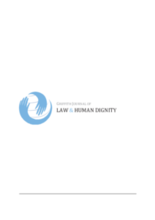Displaying 1781 - 1790 of 4273
This paper is aimed at supporting the professionals who accompany adoptees and their families in the process of searching for one's origins, and the various authorities with the competency to make decisions on this matter.
Drawing on the best available data from around the world, this Report proposes a comprehensive agenda for key policy actors – including gender equality advocates, national governments and international agencies – to make human rights a reality for all women and girls, no matter what kind of family they live in.
Having the best interest principle and taking into account the individual needs of each child in intercountry adoptions, this paper endeavours to promote the two tier approach of the principle of subsidiarity by examining the drafting spirit behind international standards (Section 1), providing examples of legislation and jurisprudence (Section 2) and identifying promising practices (Section 3) that reflect the principle.
This book is part of the WHO Regional Office for Europe’s commitment to work for the health of refugees and migrants. It showcases good practices by which governments, non-state actors and international and nongovernmental organizations attempt to address the complexity of migration, by strengthening health system responsiveness to refugee and migrant health matters, and by coordinating and developing foreign policy solutions to improve health at the global, regional, country and local levels.
This article reviews the modern literature on the impact of institutional care from animal models to longitudinal studies in humans.
This mid-level online course is designed to help participants' develop knowledge of good practice in child protection, with a particular focus on conflict settings.
This article by Kathryn E. van Doore and Rebecca Nhep, published in the Griffith Journal of Law & Human Dignity, describes how orphanage trafficking occurs as a process of child trafficking.
This chapter from the book Modern Day Slavery and Orphanage Tourism draws on the author's film The Voluntourist that has aided in raising the groundswell of objection to orphanage tourism.
This chapter from the book Modern Day Slavery and Orphanage Tourism responds to the question of how sending countries (of people, money and resources) contribute to the institutionalization of children in receiving countries.
This chapter from the book Modern Day Slavery and Orphanage Tourism highlights promising practice which aims to prevent and reduce the institutionalization of children at two levels: (1) systems and social work strengthening, and (2) family strengthening and gatekeeping.

